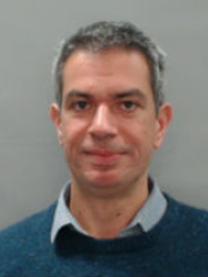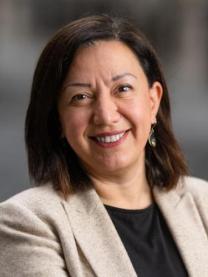Renewable Energies - Renewed Authoritarianisms?
About the project
"Renewable Energies, Renewed Authoritarianisms? The Political Economy of Solar Energy in the Middle East and North Africa (MENA)" is an Emmy Noether Junior Research Group (2022-2028) funded by the German Research Foundation (DFG) and led by Dr. Benjamin Schuetze at the Arnold Bergstraesser Institute (ABI) in Freiburg, Germany. The research group looks at the relationship between solar energy and authoritarian practices in and beyond predominantly resource-poor countries of the Middle East and North Africa (MENA).
Countries throughout the region are pursuing ambitious targets for a transition from fossil fuels to renewables. While this shift marks an important point of transition, the region’s political economy is still predominantly analysed through the prism of fossil fuels and state-centric approaches. This research group overcomes the methodological nationalism of previous studies by applying a (trans-)regional approach that focuses on different actors within and beyond the nation-state.
The main interest of the project lies in how politics is driving the expansion of solar energy, and how this (re-)shapes established authoritarian practices. While the distributed nature of solar energy offers a possibility for more democratic, inclusive and independent (energy) politics, transregionally connected authoritarian elites attempt to transform it into concentrated forms of political and economic power. This could replicate existing dependencies and authoritarian practices. The project explores the conditions under which the expansion of solar energy enables the renewal of authoritarian power, or its contestation and disintegration.
Team
Dr. Benjamin Schuetze
Emmy Noether Research Group leader
Ben obtained his PhD from SOAS, London in 2016, and has since worked as a postdoc at the University of Freiburg and as a fellow for the Young Academy for Sustainability Research at FRIAS. In his research, he focuses on authoritarian practices, 'democracy promotion' and the political economy of renewables in the MENA. He is author of Promoting Democracy, Reinforcing Authoritarianism? US and European Policy in Jordan (CUP, 2019).
Charlotte Mueller
PhD student
Charlotte completed her MSc in Migration, Mobility and Development, funded by a DAAD scholarship, at SOAS in London in 2022. She has since worked for a London-based NGO. Her PhD project focuses on the commodification and marketisation of solar energy in Morocco, with a specific focus on the role of international donors.
Elia Wehaiba El Khazen
PhD student
Elia is a PhD student and researcher at the Arnold Bergstraesser Institute and the University of Freiburg. In his PhD project he explores how the 'logistics revolution' that accompanies the promotion of solar energy in Jordan reshapes mobilization from below.
Philipp Wagner
PhD student
Philipp received his MA in Applied Political Science from the University of Freiburg and Sciences Po Aix-en-Provence in 2022. In his PhD project, he focuses on the governance of Tunisian-European solar and hydrogen energy relations and selective connectivities. During his research in Tunisia he is affiliated with the Merian Centre for Advanced Studies in the Maghreb (MECAM) at the Université de Tunis.

Tabea Knerner
Student assistant
Tabea is currently studying a MA in Islamic Studies at the University of Freiburg and spent a DAAD-funded semester abroad at the German Jordanian University in Amman.
Prof. Dr. Adam Hanieh
Visiting researcher in July 2024
Adam is Professor of Political Economy and Global Development at the University of Exeter and Distinguished Research Fellow at Tsinghua University in Beijing. In his research, he focuses on the political economy of the Middle East. He is author of several books, including Crude Capitalism: Oil, Corporate Power, and the Making of the World Market (Verso, 2024).
Dr. Rafeef Ziadah
Visiting researcher in July 2024
Rafeef is Senior Lecturer in Politics and Public Policy at King’s College London. In her research, she focuses on infrastructures and logistics, gender and feminism, and race and racialisation, with a particular focus on the political economy of maritime infrastructures in the MENA. She is author of various articles on humanitarian logistics and the logistics space in the Gulf, and co-author of Revolutionary Feminisms (Verso, 2020).













